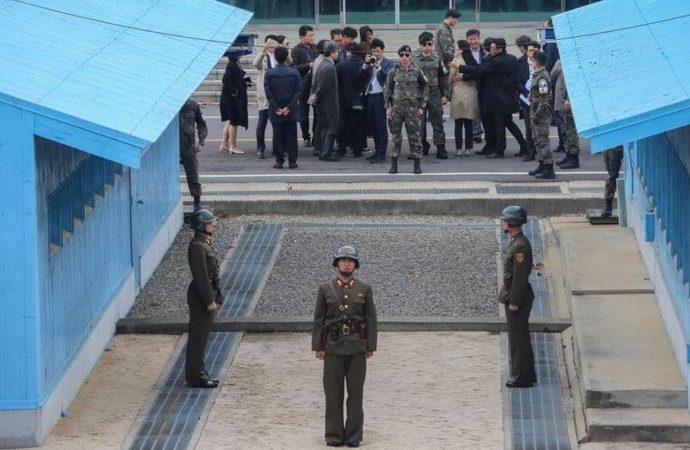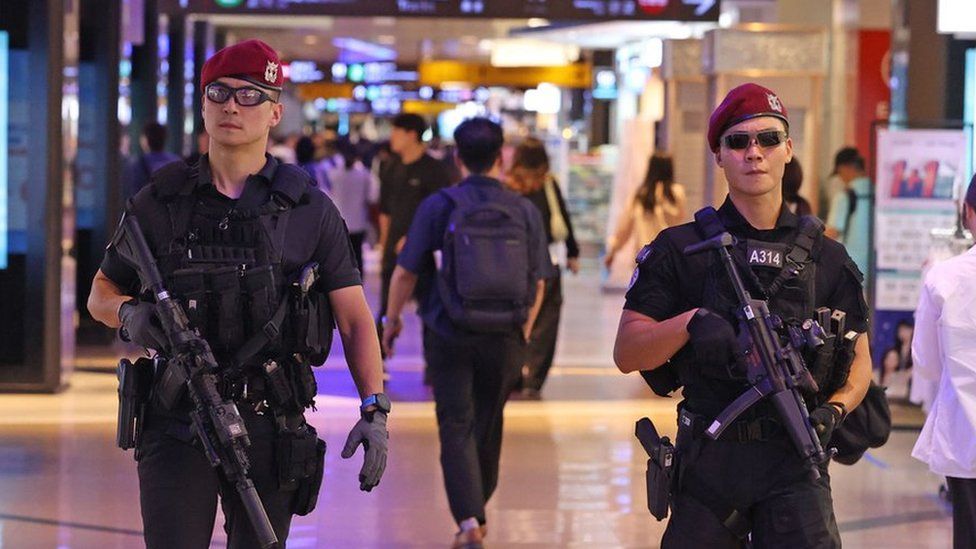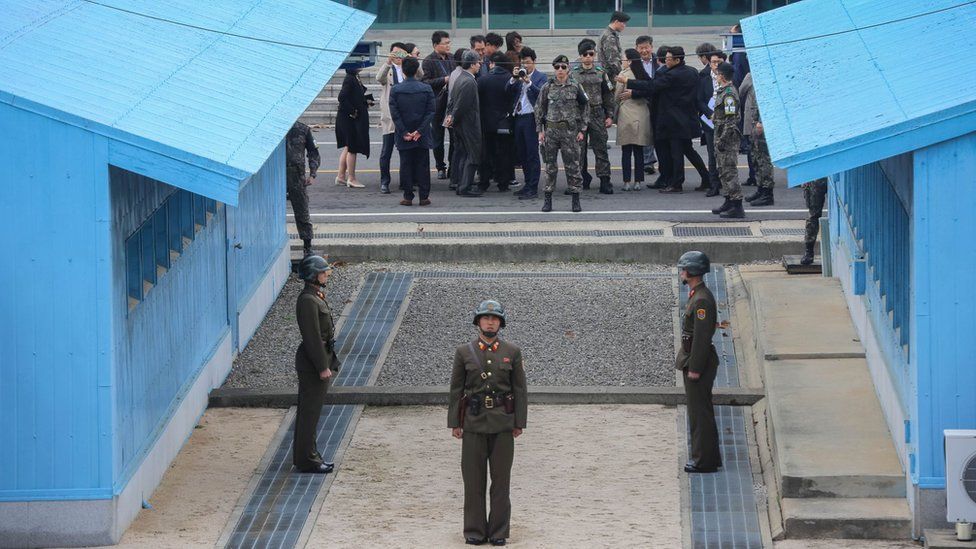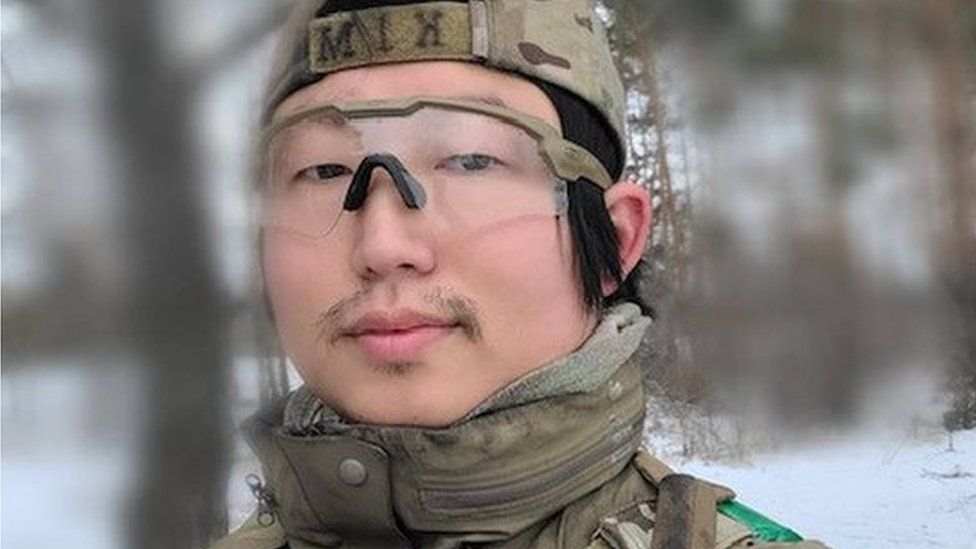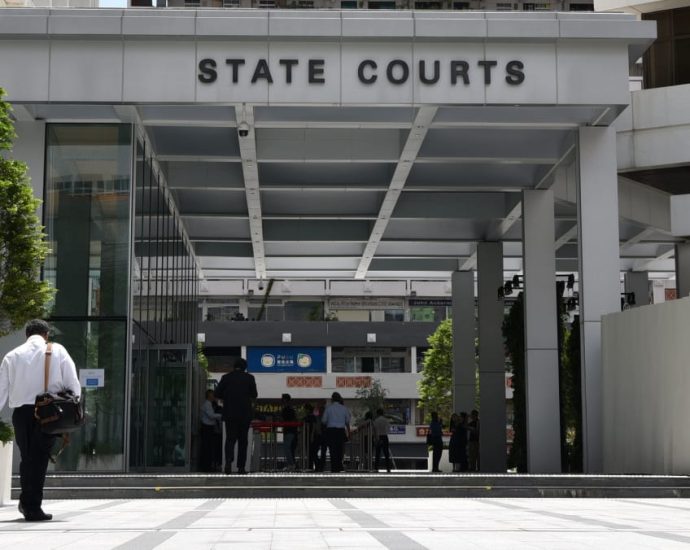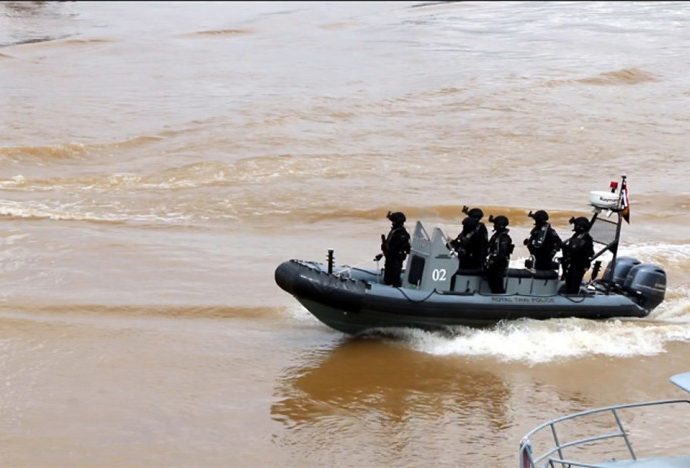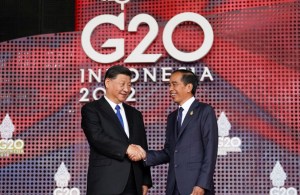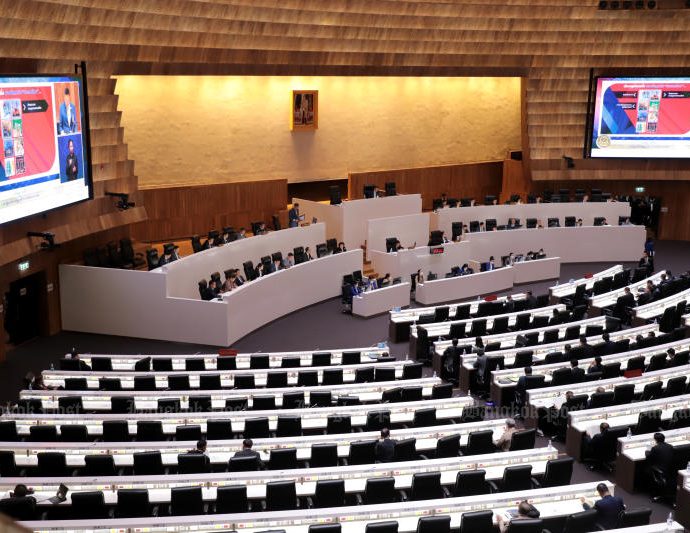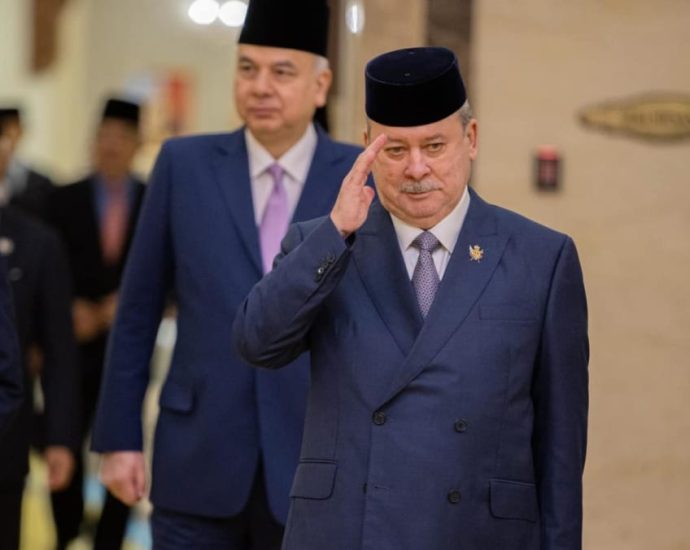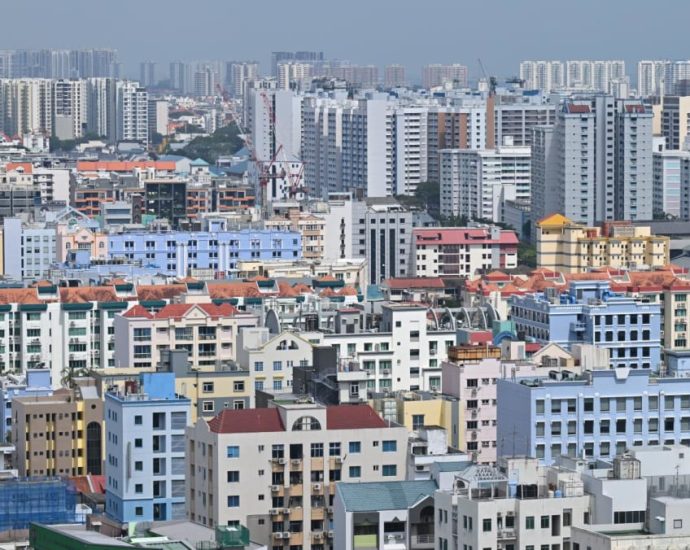One of suspects wanted for helping prisoner escape arrested
PUBLISHED : 27 Oct 2023 at 15:12

One of five suspects wanted in connection with aiding the escape of a 37-year-old prisoner, incarcerated for multiple serious crimes, from a hospital in Nakhon Si Thammarat has been arrested in Songkhla.
Khanet “Boy” Thongprajong, 28, was apprehended inside a shopping mall in Songkhla’s Hat Yai district on Thursday evening as he went to watch a movie. He admitted to the charges during police questioning at Muang station in Nakhon Si Thammarat on Friday.
Khanet was among the five suspects facing arrest warrants for their alleged involvement in the escape of prisoner Chaowalit Thongduang, alias “Sia Paeng Nanod”, from Maharat Nakhon Si Thammarat Hospital.
Chaowalit managed to escape from the hospital on Sunday morning. He had been taken to the hospital for dental treatment on Friday and was subsequently kept in after collapsing, citing severe leg pain.
During questioning, Khanet initially denied any involvement, but he later confessed when presented with CCTV footage from the hospital. He admitted to providing a mobile phone and tools to aid Chaowalit’s escape on Friday night.
Police took him to Maharat Nakhon Si Thammarat Hospital on Friday for a re-enactment of the crime, and his motorcycle was seized at a rented house in Muang district of this southern province.
According to Khanet’s confession, he had known Chaowalit from their time serving sentences on drug charges at Central Nakhon Si Thammarat Prison. Following his release, Chaowalit contacted him.
Khanet now faces charges of colluding in helping the prisoner’s escape, carrying a prison term of up to five years.
Police suspected that Chaowalit may be hiding in Khao Banthat Wildlife Sanctuary, a refuge for animals that covers four southern provinces.
Police were tracing the prisoner in the area via mobile phone signals, which marks a U-turn from their previous assumption that Chaowalit had fled the country through the southern border province of Satun.
Chaowalit was sentenced to 20 years and six months in jail last year by Phatthalung Provincial Court for attempted murders in connection with an armed attack on police during an attempted abduction on Sept 2, 2019, in Phatthalung.
Chaowalit began serving his sentence at Phatthalung Prison in January 2022 and was transferred to Nakhon Si Thammarat Prison on Aug 7 this year. He also faces multiple other criminal charges, including murders, most of which are still in the courts.
CelcomDigi empowers businesses with 5G insights at inaugural MY5G Conference & Showcase 2023
Event seen as key step for effective adoption and enablement of 5G in Malaysia
5G global experts share insights on how global businesses leveraged power of 5G
CelcomDigi, Malaysia’s leading telco-tech provider, held its inaugural MY5G Conference & Showcase 2023 on Wednesday, as part of its ambition to accelerate 5G adoption across businesses…Continue Reading
South Korea court upholds ban on gay sex in the military
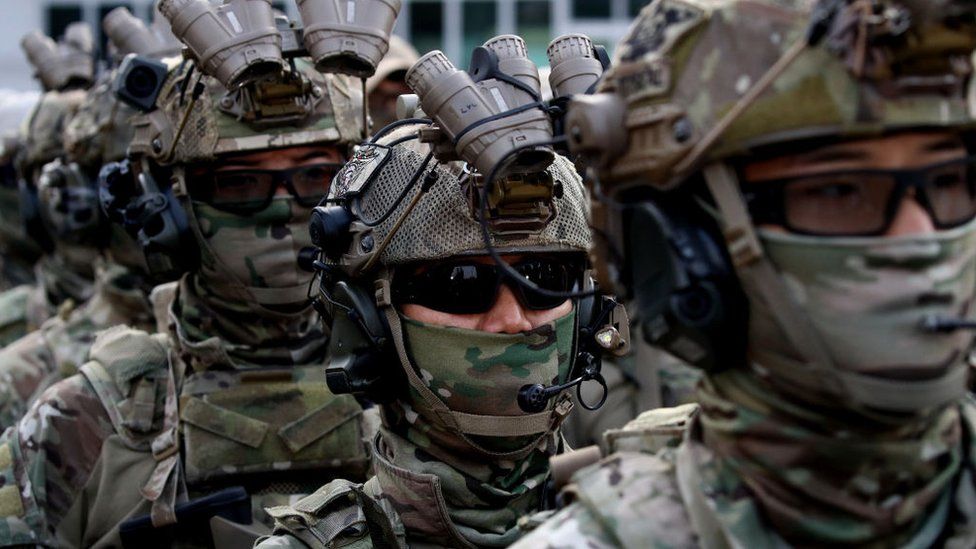 Getty Images
Getty ImagesSouth Korea’s constitutional court has upheld a law banning same-sex relations in the military, in what activists have called a setback for LGBT rights.
The court said same-sex relationships could harm troops’ combat-readiness and undermine discipline.
Same-sex intercourse between civilians however, is not a crime.
Military service is compulsory in South Korea, with all able-bodied men aged between 18 and 28 are required to serve for about 20 months.
Activists condemned the ruling, saying it fuels violence and discrimination against gay soldiers.
The ban has “institutionalized discrimination, reinforced systematic disadvantages faced by LGBT people and risked inciting or justifying violence against them, both inside the military and in everyday life”, Amnesty International East Asia researcher Boram Jang said in a statement.
The court, in a five-to-four vote, ruled that article 92-6 of the military criminal act was constitutional. The act does not explicitly refer to same-sex intercourse but bans “anal intercourse” or “any other indecent act” during service.
It was the fourth time since 2002 that the court upheld the law, which carries a prison term of up to two years.
“The world has advanced toward the elimination of LGBT discrimination, but the minds of Constitutional Judges have not taken a single step forward,” said Centre for Military Human Rights Korea head Lim Tae-hoon in a statement.
Homosexuality may not be illegal in South Korea – since 2003 it is no longer classified as “harmful and obscene” – but discrimination remains widespread.
Same-sex marriage is not recognised and being gay is sometimes seen as a disability or even a medical condition in South Korea.
Related Topics
Bankrupt car dealer used almost S$264,000 in customers’ down payments to invest in China, gets jail
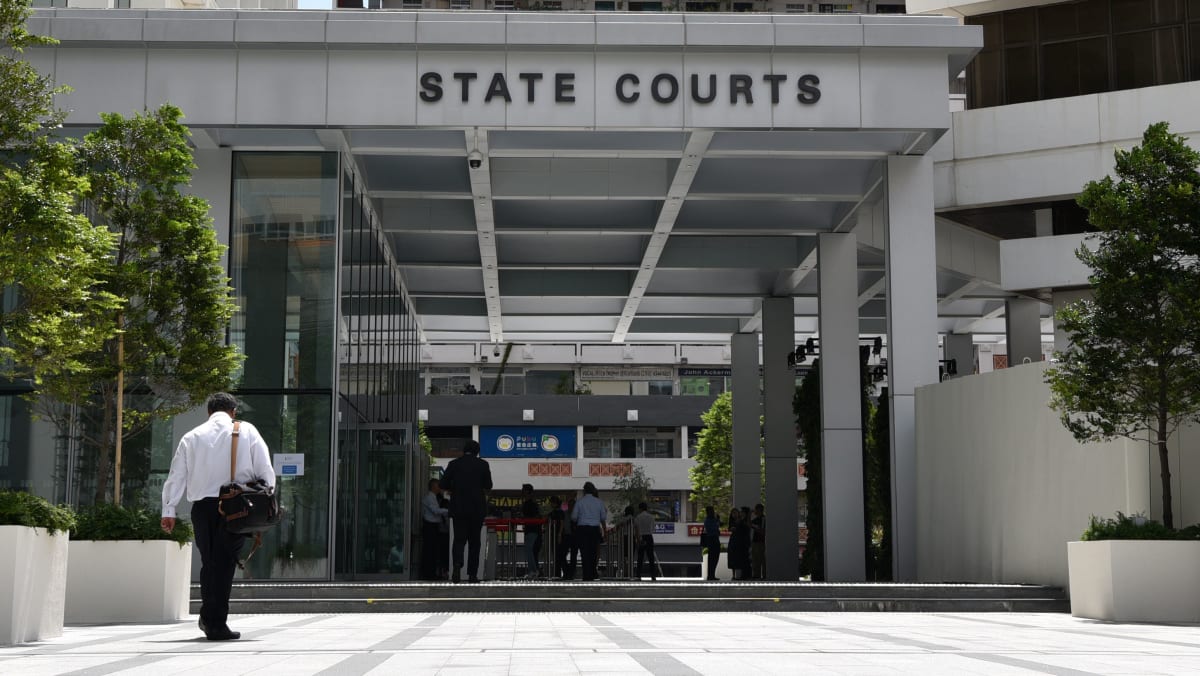
SINGAPORE: A bankrupt man who managed a car dealership registered under his partner’s name pocketed almost S$264,000 (US$193,000) in down payments from six customers and used it for an investment in China.
The customers later made police reports saying that the cars they had recently purchased from the car dealer had gone missing and were later repossessed.
Wong Sang Keng, 75, was sentenced to 14 months’ jail on Friday (Oct 27).
He pleaded guilty to one count of criminal breach of trust. Another charge of taking part directly in the management of a business when he was an undischarged bankrupt was taken into consideration.
The court heard that Wong has been bankrupt since 1983.
He engaged another man to register Prince Auto, a car dealership along Commonwealth Lane, as a sole proprietorship as he could not do so himself due to his bankrupt status.
Wong managed the operations of Prince Auto while the other man dealt with administrative work. Wong promised him S$2,000 a month with commission whenever a deal was successful.
Prince Auto was set up in 2008 and Wong managed the business. He sold six victims – aged between 49 and 68 – a secondhand car each, collecting down payments from them so he could discharge the outstanding loans on the vehicles.
The vehicle ownership of each car would then be transferred from the finance company to each victim.
As part of this, Wong was entrusted with S$263,921 in total from the six men between April and August in 2015.
However, he pocketed the money by spending it on a wine investment opportunity in China, and other purposes.
He claimed to have come across the investment opportunity in October 2014 and invested over S$280,000 by February 2015.
He told investigators that he used Prince Auto’s customers’ down payments for these investments. After that, he began “rolling” the money he collected from subsequent customers to make further investments or towards transferring vehicle ownership for earlier customers.
Wong left Singapore briefly on Aug 31, 2015, and the victims filed police reports. Because he had not used the down payments to discharge the outstanding loans for the vehicles, the cars were not transferred to the victims.
Instead, all six vehicles were repossessed by the finance company around September 2015, and Wong did not answer any of the victims’ calls.
He was arrested after returning to Singapore in October 2015, and has not made any restitution.
MITIGATION
Defence lawyer Wee Hong Shern in his mitigation plea gave the background of his client.
He said Wong was a captain in the Singapore Armed Forces for a decade before venturing into sales, where he found himself very successful selling cars.
However, due to debt and legal problems, he became bankrupt.
“Due to his experience and expertise and clientele however, he was still heavily sought after by car dealers and companies,” Mr Wee said.
This led him to have an arrangement with Prince Auto as their operations manager, and he made sure he did not have any ownership in Prince Auto as he was a bankrupt and did not want to run afoul of the law.
Mr Wee said his client was doing a wine export business for China at the time of the offence.
However, he made a mistake in using the payments he received from customers towards his investment in China, making large purchases of more than S$200,000 worth of wine to be exported to the country.
Wong was later told that the entire shipment had been seized by China’s customs authority and would be confiscated.
This was why Wong left Singapore, to meet his partner and attempt to explain the “mistake” to Chinese authorities, leaving his car business unattended, said Mr Wee. Wong was ultimately unable to convince Chinese authorities to release the wine.
Mr Wee said his client is old and performs the role of primary caregiver to his elderly wife, whose health has taken a turn for the worse.
“He wishes to serve his sentence and be reunited with her as quickly as possible to ensure that he is physically present to care for her,” said the lawyer.
US hands over 12 patrol boats to Thai marine police
PUBLISHED : 27 Oct 2023 at 13:41

NONG KHAI: The United States on Thursday handed over 12 patrol boats to the Marine Police Division for operating in the Mekong River to combat drug and contraband smugglings as well as transborder crime.
US Ambassador to Thailand, Robert F Godec, presented the patrol boats in a ceremony at the Marine Police Sub-Division 11 headquarters in Muang district, Nong Khai province.
The event was attended by Rachan Soonhua, the Nong Khai governor, Pol Maj Gen Wiwat Chaisangkha, deputy commissioner of the Central Investigation Bureau, and Pol Maj Gen Pritthipong Nuchanart, commander of the Marine Police Division.
Mr Godec said the donation was made under the International Narcotics and Law Enforcement (INL) cooperation between the US embassy in Thailand and the Royal Thai Police.
The boats, valued at 75.4 million baht (US$2.15 million) in total, are specially designed to operate in rivers with rapids and low water levels during the dry season.
Representatives from the US Coast Guard and the INL had also trained 24 marine police officers to use the patrol boats between Oct 16-26, Mr Godec said.
Mr Rachan said the patrol boats symbolise the good relations between the US and Thailand. They will play a crucial role in the operations of marine police along the Mekong River, contributing to the suppression of crime and various security threats, he added.
The 12 marine police stations along the Mekong River under the Marine Police Sub-Divisions 10, 11 and 12 will be assigned with one boat each.
Why Indonesia chooses autonomy over BRICS
Since 2011, observers have regarded Indonesia as a hot accession candidate should BRICS, a forum of emerging powers with Brazil, Russia, India, China and South Africa as members, decide to enlarge their club.
When during the latest BRICS summit held in South Africa in August 2023 China persuaded its hesitant partners to invite new members to the forum, Indonesia was on the cards of all five BRICS member governments.
The country’s potential value for BRICS is obvious. It is the country with the world’s fourth largest population, a fast-growing economy with the potential to become one of the globe’s top five economies by 2045 and a leading power in Southeast Asia, a strategically important region where the United States and China compete for influence.
But surprisingly, Indonesia was not among the six countries – Argentina, Saudi Arabia, Egypt, the United Arab Emirates, Iran and Ethiopia – that were selected from among 23 countries that had submitted letters of interest. Indonesian President Joko ‘Jokowi’ Widodo informed the public that the Indonesian government had decided not to hand in a letter of interest because it did not want to rush membership.
According to Jokowi, the government needs more time to study the benefits and drawbacks of BRICS membership, especially in the economic domain, and wants to consult with its ASEAN partners.
This is the official version, but peeling back the surface reveals the deeper motivations behind Indonesia’s decision not to join BRICS.
One reason is that Indonesia’s foreign policy has a long tradition of non-alignment. Aggressive Chinese attempts to enlarge BRICS cause wariness in Jakarta, invoking Cold War-era bloc building against the dominance of the United States and its Western allies.

Joining BRICS would be read in the West as signaling a shift towards the Chinese camp. It would be perceived as a major change in Indonesia’s hedging and issue-balancing policy, under which Jakarta tilts more toward the United States in security affairs and more towards China on economic issues. The credibility of the country’s age-honored bebas aktif or “free and active” doctrine would suffer.
Following the enlargement of BRICS, the forum is increasingly seen in the West as a geopolitical vehicle for China and Russia. This means that Indonesia must carefully calibrate its position. Indonesia’s failure to unequivocally condemn Russia’s invasion of Ukraine – a flagrant violation of international norms of sovereignty, territorial integrity and peaceful conflict resolution, to which Indonesia explicitly subscribes — has raised eyebrows in the West.
This also holds true for Indonesia’s negotiation of a free trade area with the Russian-led Eurasian Economic Union. Joining BRICS would have exacerbated Western irritations.
Any semblance of further tilting towards Russia and China jeopardizes relations with the West. As BRICS is a highly diverse forum, even more so after enlargement, membership would come with high transaction costs for Indonesia.
Indonesia would have to devote enormous diplomatic resources to BRICS in order to ensure its alignment with Indonesia’s national interests. BRICS accession would also compromise Indonesia’s much-cherished goal of being a “good global citizen.”
Indonesia’s identity in international relations markedly differs from the other members of BRICS. Although Indonesia shares BRICS members’ profound dissatisfaction with the existing international order, it airs demands for reform in much more conciliatory and accommodating language.
It is no accident that in 2013 Indonesia joined MIKTA, a forum consisting of Mexico, Indonesia, South Korea, Turkey and Australia, which seeks to act as a “constructive multilateralist,” “bridge-builder” and “force for good.”
While the performance of MIKTA as a bridge-builder and Indonesia as a mediator is debatable, Indonesia’s moderation enabled it to maintain open dialogue channels with the Global North while advocating for the interests of the Global South. Indonesia has been invited to speak as a guest at both the Western G7 and BRICS.
The Indonesian government also remains unconvinced of the economic benefits of BRICS accession. Even without BRICS membership, Indonesia is economically closely affiliated with China, its largest trading partner and a major investor.
Trade with China dwarfs trade with the other BRICS member states, including the new members. Maintaining close economic relations with Beijing does not require BRICS membership and can be promoted bilaterally.

Indonesian economists do not regard BRICS’s New Development Bank as a particularly attractive option to finance the country’s investment needs. With an initially subscribed capital of US$50 billion, it clearly trails other development banks such as the World Bank and the Asian Development Bank.
Key figures in the Indonesian cabinet, like Finance Minister and former World Bank managing director Sri Mulyani Indrawati and Foreign Minister Retno Marsudi, opposed joining BRICS and may have more confidence in Western-dominated financial institutions even while pleading for their reform.
BRICS accession would also endanger Indonesia’s endeavors to become the third Asian member of the OECD. While Indonesia’s development is still far behind the level at which South Korea was admitted and admission is a lengthy process, not acceding to BRICS could be used as leverage for Indonesia to expedite OECD membership.
Not joining BRICS reflects Indonesia’s foreign policy pragmatism, a key dimension of the bebas aktif doctrine originally formulated by founding father Mohammed Hatta. It is unlikely that Indonesia will abandon this proven strategy in a highly volatile international political environment.
Jurgen Ruland is Professor Emeritus in the Department of Political Science at the University of Freiburg, Germany.
This article was originally published by East Asia Forum and is republished under a Creative Commons license.
House committee set up for study on legal casino complexes
PUBLISHED : 27 Oct 2023 at 12:44
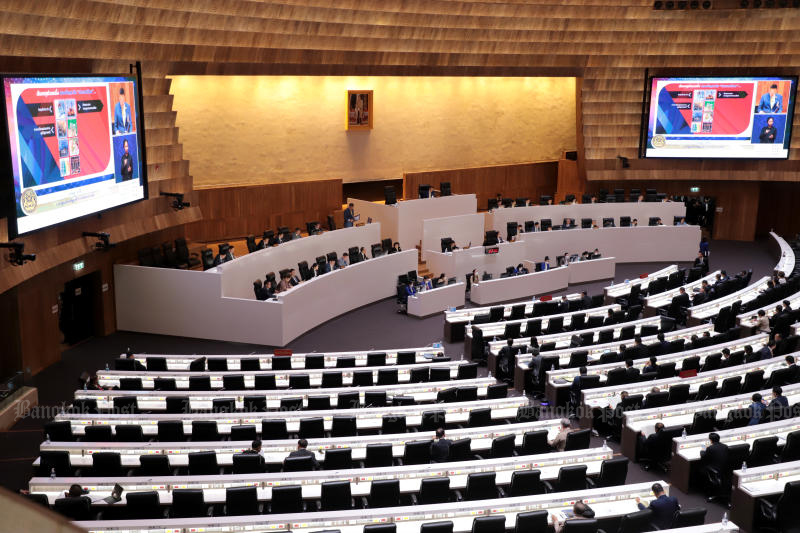
The House of Representatives has set up a 60-member committee to study the potential opening of entertainment complexes, including casinos, to address the problem of illegal casinos and boost the country’s economy, as proposed in a motion submitted by MPs from various parties.
Supporters of the motion included Thoedchart Chaipong, a Pheu Thai MP for Chiang Rai, Non Paisanlimcharoenkij, a Move Forward Party MP for Nonthaburi, and Chatchawal Kong-udom, a United Thai Nation Party list MP.
The motion, calling for the formation of a committee to examine the matter, underwent deliberation in a House meeting chaired by House Speaker Wan Muhamad Noor Matha on Thursday.
During the debate, many MPs voiced their support for the motion.
Rangsiman Rome, a Move Forward Party list MP, expressed his support but warned that a similar working body was also established by the previous House of Representatives to study this matter.
The opposition MP said he was informed that a company based in Tak province, accused of engaging in human trafficking and the illicit trade of human organs, succeeded in sending a representative to express its views before the committee, seemingly with malicious intent.
Mr Rangsiman emphasised the need for preventive measures against ill-intentioned influence.
The Move Forward MP said he believed that legalising casinos in Thailand could lead to the collapse of border-operating casinos, redirecting Thai gamblers’ money towards government revenue for national development.

Rangsiman: Legalising casinos in Thailand could redirect Thai gamblers’ money towards government revenue.
United Thai Nation Party list MP Chatchawal highlighted the loss of income due to Thai people travelling to neighbouring countries for casino gambling. Mr Chatchawal said he first proposed the legalisation of casinos 30 years ago, but many people disagreed.
At least five entertainment complexes with casinos should be strategically located across the country – one each in the North, the South, the East, the West and the Central Plains, he said.
These complexes would provide jobs for Thai people so that they would not have to look for jobs in the Middle East, which is prone to armed conflicts, Mr Chatchawal said.
Following the debate, with no objection from any MP, Mr Wan set up a 60-member committee to study the opening of entertainment complexes. The committee has 90 days to complete its task.
Mr Wan then announced that parliament, which has opened since July 3, will complete its first session on Oct 30.
A royal decree announcing the closure of the parliamentary session from Oct 31 was then read out to legislators, and the House meeting was adjourned at 8.50pm.
US labor shortages migrate well beyond the farm
Labor shortages are a perennial challenge for many American farmers. Are they becoming a perennial challenge for the US economy?
It’s starting to look that way.
Tightness in the labor market is evident in the big pay increases some workers have been scoring. Under the new United Parcel Service labor contract, UPS truck drivers will, by 2028, be averaging $170,000 a year in pay and benefits.
United Airlines pilots just won a 40% pay raise over four years. Newly minted lawyers recruited into big East Coast law firms are starting at $200,000 a year.
The unemployment rate has been below 4% for 22 months. There are 3.6 million more job openings nationwide than there are unemployed people.
It’s tempting to dismiss these signs of tightness as symptoms of economic long Covid, and that’s partially true. It would be logical to assume that as the pandemic-induced bottlenecks inevitably ease, so will the labor market.
But there’s a deeper underlying tightness problem that will be harder to solve. You can see it in the labor force participation rate, which has been declining for two decades. In August of 2003, it was 66.1%. This August, it was 62.8%.
That may not sound like much of a drop, but the difference between participation rates of 62.8% and 66.1% when the labor force is 168 million strong is 1.2 million. That’s a lot of people who are neither working nor looking for work.

The pig in the python
Demography is destiny, and two long-term demographic trends are among the reasons labor shortages may well become perennial. Baby boomer retirements are the more immediate of the two.
The boomers, born between 1946 and 1964, are the largest generation of Americans. Demographers refer to us as “the pig in the python” because we form such a big bulge in the age distribution of the population.
Many of the earliest-born boomers have already retired. (I’m typical. Born in 1947, I retired as a DTN employee in 2012.) By the end of this decade, the entire boomer generation will have reached normal retirement age. Boomer retirements are taking a lot of formerly productive people out of the labor force.
The other big demographic trend is a sub-replacement-level fertility rate. For a human population to replace itself requires an average of 2.1 children per parental couple. In the US this year, the fertility rate is estimated at 1.84.
While the full effects of lowered fertility will take more time to be felt, they put constant downward pressure on the population. Other things being equal (they’re not, but we’ll get to that), they foretell a declining population and a smaller labor force.
Low fertility rates are a reality in many developed countries, reflecting the increasing choices available to women. Britain’s fertility rate is 1.63. Italy’s is 1.39. Singapore, South Korea and Taiwan are all under 1.2. (If you’re wondering, then, how the world’s population could be rising to 10 billion in 2050 from 7.9 billion today, the answer is fertility rates remain high in the developing world. Many African countries are above 3 and several are above 5.)
In some countries with low fertility rates, population is already shrinking. Japan, with a fertility rate of 1.39%, saw its population decline by 800,000 in 2022.
Backlash against immigration
In many developed countries, including the US, rising immigration is offsetting falling fertility and keeping populations stable or even rising. That’s why other things aren’t equal.
But there’s a strong political backlash against immigration everywhere and most developed countries are trying to slow or stop it. If they succeed, their native populations may be happier but those populations will eventually be smaller.
Farmers who rely on immigration to compensate for labor shortages are well aware of the political sensitivities. Farmers would benefit from more generous legal immigration programs, and while these programs have expanded in recent years, they don’t work at all for some and have complicated and costly rules that discourage others.

It’s never easy getting Washington to let in more temporary workers.
It’s often said that the country has a choice – it can import food or it can import labor. Similarly, the country faces a choice if it wants the economy to keep growing. It can have immigrants or it can have perennial labor shortages.
The trick will be in coming up with sensible policies that allow a sufficient number of legal immigrants while keeping out the illegals. Unfortunately, despite good-willed efforts on the part of some politicians, the country has for many years been stuck with policies that don’t achieve either objective.
Former longtime Wall Street Journal Asia correspondent and editor Urban Lehner is editor emeritus of DTN/The Progressive Farmer.
This article, originally published on October 11 by the latter news organization and now republished by Asia Times with permission, is © Copyright 2023 DTN/The Progressive Farmer. All rights reserved. Follow Urban Lehner on Twitter: @urbanize
Sultan Ibrahim of Johor to be appointed Malaysiaâs king for the first time

KUALA LUMPUR: Johor ruler Sultan Ibrahim Sultan Ismail will be installed as Malaysia’s king from January 31, 2024, the first time he will be holding the post.
The announcement was made in a statement issued by the Keeper of the Royal Seal Syed Danial Syed Ahmad on Friday (Oct 27) after the country’s nine sultans met at the Conference of Rulers to vote on who among them would be the next head of state, also known as Yang di-Pertuan Agong (YDPA), for the next five years.
“I hereby inform that the Conference of Rulers, during its 263rd (Special) Meeting, held at the National Palace on Friday, October 27, 2023, has agreed to declare that His Royal Highness Sultan Ibrahim, Sultan of Johor Darul Ta’zim, has been chosen as His Majesty the Yang di-Pertuan Agong XVII for a period of five years commencing from January 31, 2024,” the statement said.
It added that Sultan of Perak, Sultan Nazrin Muizzuddin Shah, will be appointed deputy king, also for five years from the Jan 31, 2024.
The term for the current king, Pahang ruler Al-Sultan Abdullah Ri’ayatuddin Al-Mustafa Billah Shah, ends on Jan 30, 2024.
Sultan Ibrahim’s coronation ceremony is expected to be held at a later date.
The decision to select Sultan Ibrahim as the next king follows the established order of Malaysia’s unique rotational system in which the country’s nine royal households take it in turns to hold the position. The system was agreed to in 1957 when Malaya secured independence from British rule.
HDB Q3 resale prices up 1.3%; lowest volume since 2020
Quarter Resale Price Index % Change Q3 2023 178.5 1.3 Q2 2023 176.2 1.5 Q1 2023 173.6 1.0 Q4 2022 171.9 2.3 Q3 2022 168.1 2.6 The resale volume for the third quarter is the lowest in the last three years since the third quarter of 2020, HDB said. Resale transactions forContinue Reading



